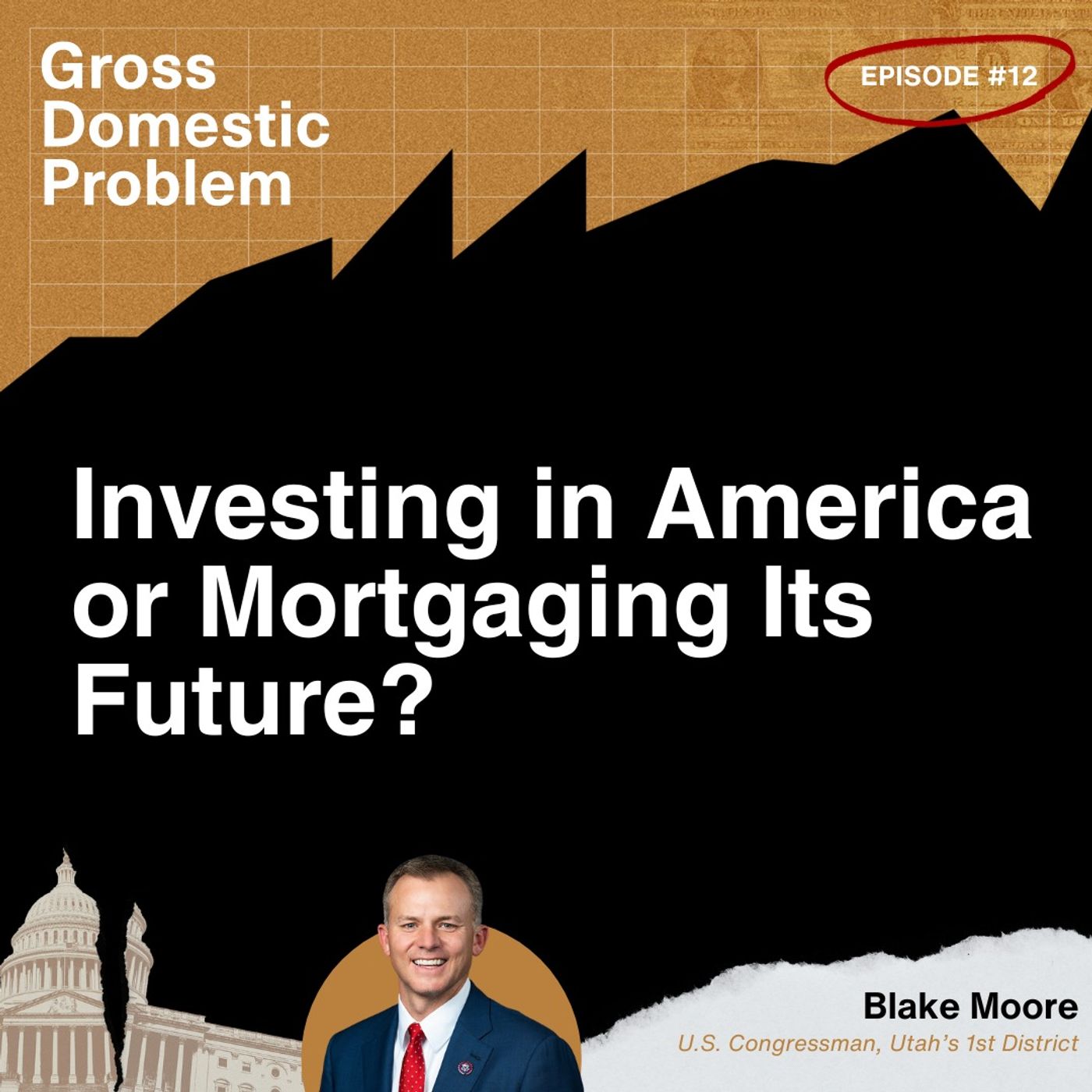Gross Domestic Problem

Gross Domestic Problem
Podcast Description
Welcome to Gross Domestic Problem — the podcast that unveils America’s biggest financial crisis. Every episode, we break down how we got here, what happens if we don’t act, and the least painful way forward.
There’s no do-nothing solution. And every solution requires sacrifice. Ignoring it means handing the burden to the next generation. If that’s unacceptable to you, you’re in the right place.
Subscribe now at grossdomesticproblem.com and join the conversation.
Podcast Insights
Content Themes
The podcast explores critical topics related to America's financial crisis, including the historical context of fiscal policy, health care spending reforms, political perspectives on budget management, and the implications of national debt, featuring episodes like 'Twinkies and Taxes' focusing on fiscal irresponsibility and 'Budgeting on Autopilot' which addresses budgeting processes.

Welcome to Gross Domestic Problem — the podcast that unveils America’s biggest financial crisis. Every episode, we break down how we got here, what happens if we don’t act, and the least painful way forward.
There’s no do-nothing solution. And every solution requires sacrifice. Ignoring it means handing the burden to the next generation. If that’s unacceptable to you, you’re in the right place.
Subscribe now at grossdomesticproblem.com and join the conversation.
In this episode of Gross Domestic Problem, Congressman Blake Moore joins the show to discuss America’s mounting national debt, the challenges it poses to economic stability, and the critical need for fiscal responsibility. Topics include the origins and consequences of the debt crisis, the importance of bipartisan action, the role of tax and spending policy, and the formation of commissions to advise fiscal reform. Key takeaways for viewers are highlighting the urgent necessity for economic growth, reducing government spending, fostering bipartisan cooperation to secure a sustainable financial future for the next generation, and so much more.
Key topics in today’s conversation include:
- Welcoming Congressman and Setting the Context (0:58)
- Congressman Moore’s Motivation for Fiscal Focus (2:27)
- Consequences of Unchecked Debt (3:47)
- Appropriations and Deficit Breakdown (4:45)
- Impact on Younger Generations and Business Environment (5:42)
- Debt’s Inflationary Effects and Recent Economic History (7:04)
- Retirement Demographics and Deficit Growth (8:10)
- Discussion on “Reconciliation Moment” and Bipartisan Opportunities (10:08)
- Defense of Tax Policy, Revenue, and International Impact (13:36)
- Challenges of Workforce and Productivity, Immigration Potential (15:34)
- Task Force Origins and Role (16:05)
- Policy Recommendations, Chain CPI, and Political Challenges (19:13)
- Measuring Success and Key Metrics (25:30)
- Final Thoughts and Takeaways (26:45)
Gross Domestic Problem is a podcast from Millennial Debt Foundation focusing on America’s biggest financial crisis. Each episode, we break down how we got here, what happens if we don’t act, and the least painful way forward. There’s no do-nothing solution. Subscribe now at grossdomesticproblem.com and join the conversation.
Hosted by Simplecast, an AdsWizz company. See pcm.adswizz.com for information about our collection and use of personal data for advertising.

Disclaimer
This podcast’s information is provided for general reference and was obtained from publicly accessible sources. The Podcast Collaborative neither produces nor verifies the content, accuracy, or suitability of this podcast. Views and opinions belong solely to the podcast creators and guests.
For a complete disclaimer, please see our Full Disclaimer on the archive page. The Podcast Collaborative bears no responsibility for the podcast’s themes, language, or overall content. Listener discretion is advised. Read our Terms of Use and Privacy Policy for more details.